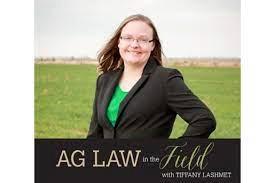 In her review of significant litigation during 2022, Texas A & M Extension attorney Tiffany Lashmet posted on ‘greenwashing’ in a recent edition of her Texas Agricultural Law Blog.
In her review of significant litigation during 2022, Texas A & M Extension attorney Tiffany Lashmet posted on ‘greenwashing’ in a recent edition of her Texas Agricultural Law Blog.
A number of lawsuits have been filed alleging misrepresentation of products advertised as being “environmentally friendly” or applying terms such as “humanely raised”. Usler v. Vital Farms considered whether that the terms, “ethical” and “certified humane” on packaging and on websites were false and misleading. The court ruled against Usler but only on the basis of the plaintiff’s standing.
 It is inevitable that lawyers will continually push the envelope and create class action lawsuits that in all probability will never be tried but will result in a settlement. Some of the animal rights activists’ groups, including the Animal Legal Defense Fund, have infinite resources and will become more aggressive in their activities opposing intensive livestock and egg production.
It is inevitable that lawyers will continually push the envelope and create class action lawsuits that in all probability will never be tried but will result in a settlement. Some of the animal rights activists’ groups, including the Animal Legal Defense Fund, have infinite resources and will become more aggressive in their activities opposing intensive livestock and egg production.
The designation “Certified Humane™”, is awarded following audit to demonstrate compliance with predetermined standards and should be an acceptable claim. Simply using “humane” without reference to a certification process may be considered a non-substantiated claim. Terms such as “ethical” or “sustainable” are subjected to interpretation and could be the subject of litigation. In any event, for an individual company to claim that their products are “ethical” implies that competitors operate at a lower standard of ethics. Likewise, eggs produced by a company that is “bird-friendly” suggests that products from other companies are possibly “bird unfriendly”. Obviously, producers should avoid hype and above all, making label or promotional claims that cannot be verified or independently supported.